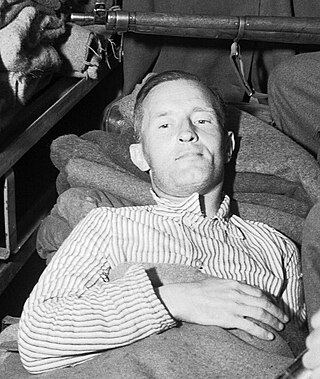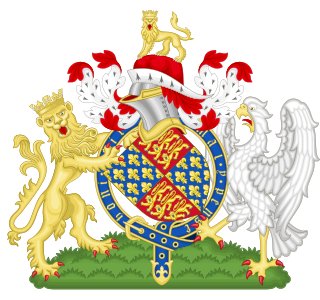
The legislatures of the United Kingdom are derived from a number of different sources. The parliament of the United Kingdom is the supreme legislative body for the United Kingdom and the British overseas territories with Scotland, Wales and Northern Ireland each having their own devolved legislatures. Each of the three major jurisdictions of the United Kingdom has its own laws and legal system.

The United Kingdom has four legal systems, each of which derives from a particular geographical area for a variety of historical reasons: English and Welsh law, Scots law, Northern Ireland law, and, since 2007, purely Welsh law as a result of Welsh devolution, with further calls for a Welsh justice system.

English law is the common law legal system of England and Wales, comprising mainly criminal law and civil law, each branch having its own courts and procedures.

Abortion in the United Kingdom is de facto available under the terms of the Abortion Act 1967 in Great Britain and the Abortion (No.2) Regulations 2020 in Northern Ireland. The procurement of an abortion remains a criminal offence in Great Britain under the Offences Against the Person Act 1861, although the Abortion Act provides a legal defence for both the pregnant woman and her doctor in certain cases.

The Northern Ireland Assembly, often referred to by the metonym Stormont, is the devolved legislature of Northern Ireland. It has power to legislate in a wide range of areas that are not explicitly reserved to the Parliament of the United Kingdom, and to appoint the Northern Ireland Executive. It sits at Parliament Buildings at Stormont in Belfast.

Under the law of the United Kingdom, high treason is the crime of disloyalty to the Crown. Offences constituting high treason include plotting the murder of the sovereign; committing adultery with the sovereign's consort, with the sovereign's eldest unmarried daughter, or with the wife of the heir to the throne; levying war against the sovereign and adhering to the sovereign's enemies, giving them aid or comfort; and attempting to undermine the lawfully established line of succession. Several other crimes have historically been categorised as high treason, including counterfeiting money and being a Catholic priest.
The High Court of Ireland is a court which deals at first instance with the most serious and important civil and criminal cases. When sitting as a criminal court it is called the Central Criminal Court and sits with judge and jury. It also acts as a court of appeal for civil cases in the Circuit Court. It also has the power to determine whether or not a law is constitutional, and of judicial review over acts of the government and other public bodies.
Misprision of treason is an offence found in many common law jurisdictions around the world, having been inherited from English law. It is committed by someone who knows a treason is being or is about to be committed but does not report it to a proper authority.

The Treason Act 1351 is an Act of the Parliament of England which codified and curtailed the common law offence of treason. No new offences were created by the statute. It is one of the earliest English statutes still in force, although it has been very significantly amended. It was extended to Ireland in 1495 and to Scotland in 1708. The Act was passed at Westminster in the Hilary term of 1351, in the 25th year of the reign of Edward III and was entitled "A Declaration which Offences shall be adjudged Treason". It was passed to clarify precisely what was treason, as the definition under common law had been expanded rapidly by the courts until its scope was controversially wide. The Act was last used to prosecute William Joyce in 1945 for collaborating with Germany in World War II.
The standard scale is a system in Commonwealth law whereby financial criminal penalties (fines) in legislation have maximum levels set against a standard scale. Then, when inflation makes it necessary to increase the levels of the fines the legislators need to modify only the scale rather than every individual piece of legislation.

In the United Kingdom, devolved matters are the areas of public policy where the Parliament of the United Kingdom has devolved its legislative power to the national assemblies of Scotland, Wales and Northern Ireland, while reserved matters and excepted matters are the areas where the Parliament retains exclusive power to legislate.
Citation of United Kingdom legislation includes the systems used for legislation passed by devolved parliaments and assemblies, for secondary legislation, and for prerogative instruments. It is relatively complex both due to the different sources of legislation in the United Kingdom, and because of the different histories of the constituent countries of the United Kingdom.

A Scottish statutory instrument is subordinate legislation made by the Scottish Ministers or a regulatory authority in exercise of powers delegated by an Act of the Scottish Parliament. SSIs are the main form of subordinate legislation in Scotland, being used by default to exercise powers delegated to the Scottish Ministers, the Lord Advocate, the High Court of Justiciary, the Court of Session, and the Queen-in-Council.

The Criminal Law Act 1967 is an Act of the Parliament of the United Kingdom that made some major changes to English criminal law, as part of wider liberal reforms by the Labour government elected in 1966. Most of it is still in force.

The Interpretation Act 1978 is an Act of the Parliament of the United Kingdom. The Act makes provision for the interpretation of Acts of Parliament, Measures of the General Synod of the Church of England, Measures of the Church Assembly, subordinate legislation, "deeds and other instruments and documents", Acts of the Scottish Parliament and instruments made thereunder, and Measures and Acts of the National Assembly for Wales and instruments made thereunder. The Act makes provision in relation to: the construction of certain words and phrases, words of enactment, amendment or repeal of Acts in the Session they were passed, judicial notice, commencement, statutory powers and duties, the effect of repeals, and duplicated offences.
Criminal Law Amendment Act is a stock short title used for legislation in the United Kingdom, the Republic of Ireland, Canada, India, Pakistan and South Africa which amends the criminal law. It tends to be used for Acts that do not have a single cohesive subject matter.
Child destruction is the name of a statutory offence in England and Wales, Northern Ireland, Hong Kong and in some parts of Australia.
Common law offences are crimes under English criminal law, the related criminal law of some Commonwealth countries, and under some U.S. State laws. They are offences under the common law, developed entirely by the law courts, having no specific basis in statute.
The first signs of the modern distinction between criminal and civil proceedings were during the Norman conquest of England in 1066. The earliest criminal trials had very little, if any, settled law to apply. However, the civil delictual law was highly developed and consistent in its operation.
The state of Ireland asserts universal jurisdiction and extraterritorial jurisdiction in various situations. Ireland has universal jurisdiction for murder and manslaughter committed by its citizens. This dates from at least 1829, retained by the Offences against the Person Act 1861, as adapted in 1973.







